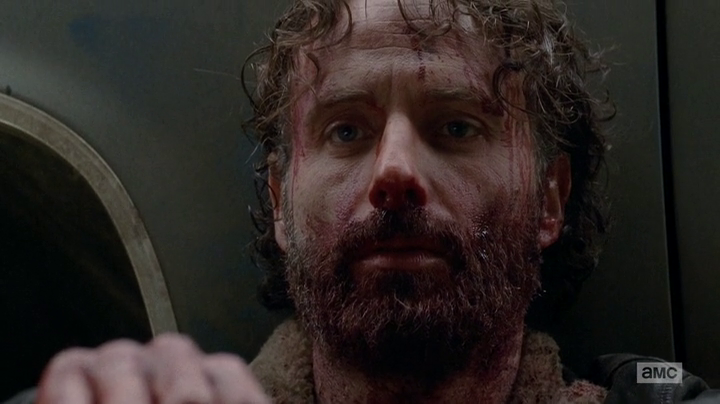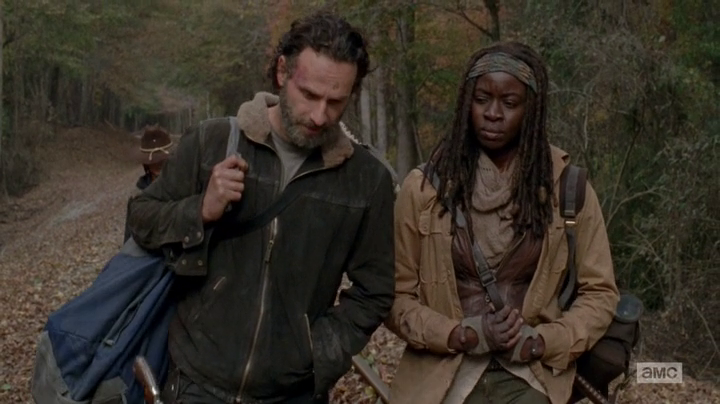The Walking Dead Season 4 Episode 16 Review: A

In Terminus, the destination Rick (Andrew Lincoln) and the others have been heading for in the second half of this strong but uneven series, it appears that his group have reached the end of the line. Trapped in a cargo container at gunpoint by the sinister inhabitants of the camp, it appears only a grisly fate awaits. And yet Rick is full of defiance. "They're going to feel pretty stupid when they find out they're screwing with the wrong people," he says.
Wild at Heart
Rick might be the protagonist of The Walking Dead, but for a long time he has felt superfluous to the show. His ordinary sheriff worked as a surrogate figure in the initial episodes, but over time his grieving over the death of his wife Lori, and hesitancy to lead the group, have made him one-dimensional to watch.
This episode signalled the change. No longer would Rick just become the person who things happen to, whose plot lines are solely based on reaction. As the clever use of flashbacks and flash-forwards at the episode's start showed, one where Rick is tending the crops with Hershel, another where his face is covered in blood; Rick represents the troubling question at the heart of the show – do you need to become a monster to survive in a world full of monsters?
When it comes to defending Carl (Chandler Riggs), it appears so. Ambushed by Joe's (Jeff Kober) group, things take a dark turn as Joe promises to rape Carl and Michonne (Danai Gurira) before killing him. Biting Joe in the jugular zombie style, he proceeds to repeatedly stab the other gang member Dan (Keith Brooks), a shockingly barbaric act that drains the scene of its heroism.
"What way are you going to show him?"

It's great to see Scott Wilson's character resurrected for some flashback scenes with Rick at the prison, telling him that he should focus on the crops remove Carl from the violence around him. As he says to Rick, "He needs his father to show him the way. What way are you going to show him?"
Hershel's death at the hands of the Governor exposes the naiveté of those words, as do the attacks by Joe's group and the inhabitants of Terminus at the end. In scenes loaded with carefully crafted tension by director Michelle MacLaren, Rick notices the pocket watch, poncho and riot gear worn by members of his group, and engages in a shootout with the townsfolk.
They're going to feel pretty stupid when they find out they're screwing with the wrong people.
Contrasting the meat-cookers of Terminus (it's heavily implied that they're cannibals) to Rick and Carl's time tending crops reveals to Rick that you have to embrace your inner demons to survive. When forced in to a corner, Rick realises that he needs to do whatever it takes to protect those he loves, which is why despite the fourth season ending on a cliff-hanger, the ending is strangely imbued with renewed optimism.
It's a confident finale that brought Rick's storyline full circle. Whilst disjointed by the way episodes have flitted between various characters, and that the denouement to the Governor's story was an overhanging element from the previous season, the fourth series of The Walking Dead has been the strongest so far.
There's been some standout character episodes, such as Internment, Still and The Grove; and having the characters separated from one another gave the show a real sense of trajectory and purpose. Showrunner Scott Gimple has breathed new life in to what was becoming a stale show, and made sure that it won't hit the buffers any time soon.
© Copyright IBTimes 2025. All rights reserved.






















